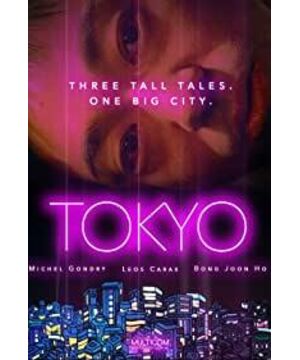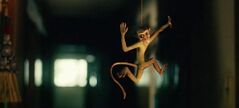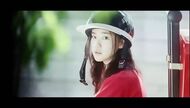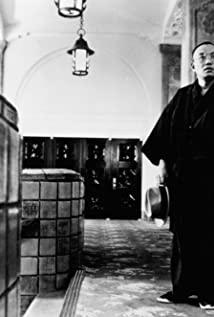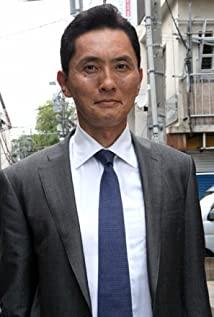"Tokyo!" of "Tokyo!" is a movie that will make people see it for a while. There are many wonderful ideas. The three directors express their feelings and impressions of Tokyo in three stories. Many people who have seen it will say that it is difficult to see how much the three stories are related to each other. In fact, this film should be viewed from a macro perspective, just like using a wide-angle lens to shoot a film with a large scene. From the perspective of the city to the people living in it, there can be many aspects of understanding of things, and there are only a few choices to express from the many and varied angles, which has its own limitations. But after reading it, I will still feel that many people in Tokyo, Japan, and even more people in other fields, including our own inertia in dealing with things, are often fatal and out of control.
All three stories are quite distinctive, and I call the first story "the story of the chair".
Hiroko and his boyfriend Amin, who has dreams of a director, come to the metropolitan Tokyo, and they have to stay in the apartment of Hiroko's friend Shimizu Zhumi temporarily. In order to make a living, the two of them searched for work and housing, but the journey was bumpy. A Ming's work was finally screened in a small theater. Looking at her boyfriend's joy, Hiroko felt more and more useless, like a chair that was discarded. When I wake up, I find that my heart is empty. The wooden frame supporting the body can be seen in the hollow. Then Hiroko, who cannot accept the facts, walks on the street. His body gradually changes from legs to whole body to wood, and finally becomes one. A chair, picked home by a musician. So when the musician is at home, Hiroko’s identity is an ordinary wooden chair. When the musician is not at home, Hiroko returns to the identity of a woman, tidying the room, watering the flowers, writing letters... So far, the first story Finish.
Maybe it looks like a fairy tale, magical and beautiful. Since then, the musician has discovered this secret accidentally, fell in love with the chair girl he picked up, and lived a happy life. But the fact is far from being so relaxing and pleasant. The director of this story is not making us as adults aware of the beautiful fairy tales in real life. If you observe the story of the chair from the details, you will find that the final outcome is just an escape and compromise. From the embarrassment of staying at a friend’s house, to sacrificing your image for your boyfriend’s projector, walking embarrassedly in a subway station, to all the pressures you endure with your girlfriend as an independent filmmaker. The whole body collapse caused by being in a state of depression. This precisely reflects the reality of the Japanese, the rapid economic development, and the rapid explosion of various information forces in the city, which brings extreme suppression and exhaustion to people. Hiroko’s boyfriend said that she has no ambitions, but Hiroko always regards her so-called hobbies and career values as ambitions. She still pays for her boyfriend blindly, but never thought of developing her photography and art. In terms of ability, perhaps as a Japanese woman, the biggest hope is to help her man develop his career. Afterwards, the wonderful cohabitation with musicians was also the same with people related to art. It seemed that I had found the comfortable life I wanted most, but I often lost my sense of responsibility and facing reality while ignoring myself. Escape the mind. This is very sad. The story of the chair may be a metaphor that many young people who go to the metropolitan Tokyo for life are experiencing. At the beginning of the movie, Hiroko’s boyfriend tells the story about the evolution of human beings into amphibians, and her boyfriend’s story. The line repeated twice throughout the film ("There will be too many lives in the future. If we don’t destroy ourselves first, we can continue to survive when the solar system is over. With the infinite creation of new souls, some people will become I'm totally possible...") These seemingly absurd, endless repetitive fantasies, but in this story, they allude to the fragility and incompetence of everyone in reality, the fragility of social relations, and the submergence of personal values. Often a novel metaphor is more likely to be deceived and accepted than a cruel reality.
The second story is the story of Dmitry, the "gutter weirdo".
Dmitry, a madman with a twisted figure and a weird behavior, got out of the sewer and walked into the streets, harassing passersby. A few days later, he appeared with a hand grenade from the Second World War that he found accidentally, and threw them one by one at the crowd. The military captured him and opened a trial. At the same time, calls for Dmitry's execution and for Dmitry's release have faded. This weird person seems to have become an idol in the era of fanaticism...I like this story very much. There are many symbols worthy of recollection and reflection. This is a very interesting thing.
First of all, starting from his diet, this is very interesting, he only eats chrysanthemums and banknotes. This is two of the many symbols. After personally searching for information, it was discovered that "Chrysanthemum" was originally the family crest of the Japanese imperial family, which symbolized the hierarchical system and related customs of Japanese society, while the banknotes meant Japan’s economic expansion. He ate these two things, which can be understood as his To make a living from it, you must die. It may be a mockery of Japan’s over-reliance on the long-solidified social system, deep-rooted cultural customs, and seemingly prosperous economy, just like food. , Indispensable and rejection; on the other hand, it can be understood that Dmitry feeds on these two things and wants to swallow the system and economy of this country that he hates. Japanese abhorrence) Eat these and then digest and excrete them. In short, chrysanthemums and banknotes mean the superstructure and economic foundation in Japan. This special hobby of Dmitry is also the director's special intention, a state of contradictory and unified Japanese dilemma.
The second is that Dmitry accidentally found a grenade left over from the Second World War in the sewers. He returned to the streets of Tokyo again and threw grenade everywhere, causing numerous deaths and injuries on the streets of Tokyo. When caught by the Japanese police, he asked him to talk to him because of language barriers. The French that Dmitry communicated with, and according to the Japanese media, there are only three people in the world who master this language. There is a doubt here, including Dmitry and the French, who is the third one? Moreover, the commonality between the French and Dmitry once again appeared as a key symbol. They both only have one eye, with long and curved nails, and slight self-abuse and religious ritual behavior can be seen in language and communication gestures. What do these imply? There is also Dmitry’s anti-Japanese radical thoughts that are left-leaning, and what he said about the will of God. Later, when he was judged, he said that his mother was a saint and finally disappeared mysteriously. He had a strong and obvious religious tendency. The emergence of a large number of symbols seems to indicate that Dmitry’s class or belief attitude strongly opposes a certain religious purpose in Japan. To a certain extent, it can be understood that its practical significance is an attack and mockery of Japanese warlordism and its stubborn and stupid culture. The biggest hint is that at the back, when Dmitry disappears, the title "Dmitry's experience in the United States" appears on the screen. This may hint at the director's irony of opposition to imperialism, or an extreme religious tendency of hegemonism.
Finally, the several symbols frequently appearing in this story are explained-
Dmitry’s "gutter" complex. From his appearance, he came out from under the manhole cover. At the end, he glanced at the entrance of the sewer and then mysteriously disappeared, suggesting that the gutter was His destiny from beginning to end. This kind of gutter implies a shady, dark and damp, conspiracy and dangerous existence, paranoid and madness. It may also be a metaphor for a certain degree of religious ritualization, or a way of practice.
At the end of the story, Dmitry was sentenced to death by hanging by the Japanese authorities. After the forensic examination was dead, he still tickles with his hands, took off the blindfold calmly, and said something. This mysterious resurrection also means this phenomenon, or this This spirit and behavior will not disappear, will not die, and will continue to survive with the existence of the things he opposes.
There is a policeman who appears in the film every time he opens Dmitry’s cell. His action of taking off his cap and scratching his head appears twice in the film. It also reflects that the police, which represents Japanese militarism, is facing its reaction. The restlessness and tension in the heart of the reader, and the subconscious head scratching movement inadvertently exposed his weakness and fear.
It can be said that the director pays great attention to details and makes good use of symbols to express themes. A lot of what I want to express is just click to the end, and more is to let the viewers observe and understand by themselves. There may be many detailed symbols that have not been discovered yet, but the story of Dmitry is enough to let people understand this contradiction in Japan. In the country, many institutional conflicts and cultural symbols are deeply ingrained. From the big aspect, to show the pitifulness of a country and a metropolis.
The third story is about an otaku, an otaku who has
n't walked out of the house for ten years. He hates sunlight and is afraid of contact with people. A pile of books constitutes his entire world. One day, he occasionally caught a glimpse of the face of the delivery girl, and the sudden earthquake brought the closed two closer. A certain man found that he could not stay at home anymore, breaking through his inner struggle to pursue his love.
It is said that people are the product of social relations. With the rapid development of modern economy, express delivery, food delivery, telephone, Internet, etc. can completely realize a world of self, without others, and people have lived in a state of abnormality, away from social relations. This story tells the life of an inhuman "house". There are take-out pizza boxes all over the wall, toilet paper tubes on one wall of the bathroom, a large number of mineral water bottles stacked neatly on the shelf, a large stack of books, one can sleep on the toilet People, a person who never looks into the eyes of a deliveryman, a person who can watch the sun slowly moving on the floor in the shadows. Maybe many of us are not like this person, but there are different degrees of similarities in this level of residence. The term "house" also originated in Japan. It traveled across the oceans to Taiwan and then spread to the mainland, calling some people who "have trouble dating at a young age, and would rather stay at home and drink beer freely, and rarely get along with family and colleagues." "People. This state is actually more of an escape from reality and rejection of the autistic psychology of the outside world. The huge economic pressure in Japan and the security-seeking mentality of a large number of people living in small spaces have gradually made more Japanese people want to be a man. Nerd. The director uses this phenomenon to express the marginalization and avoidance of social relations, and an irresponsible avoidance mentality. This is a problem that each of us cannot ignore. It is all around us and may be happening in our own lives. Perhaps a person’s life is very quiet and beautiful. One can watch the flowers bloom and fall carefully, and feel every beautiful detail in life that is often overlooked, but this is not absolute. There is no way to see the life of a hermit crab with real sunshine. Will lose more opportunities to come into contact with nature and reality. You may not feel the joy of taking a shower after sweating, you may not feel what it is like to be stepped on the real land by the natural wind, and perhaps you may not feel the joy of having a good gathering of friends. In this way, life will be flawed, and people will become a kind of sad and vulnerable animal.
Behind such a movie, the wonderful ideas are thought-provoking Japanese reality, as well as more reflections of our personal lives. It does not need the clarity and positiveness of American inspirational films, and it does not need the sluggish hints of other literary films. These are some. A very inspiring little story, true and absurd, weird, weird, clean, and enjoyable thinking mode is behind the reality that we have to face.
View more about Tokyo! reviews


